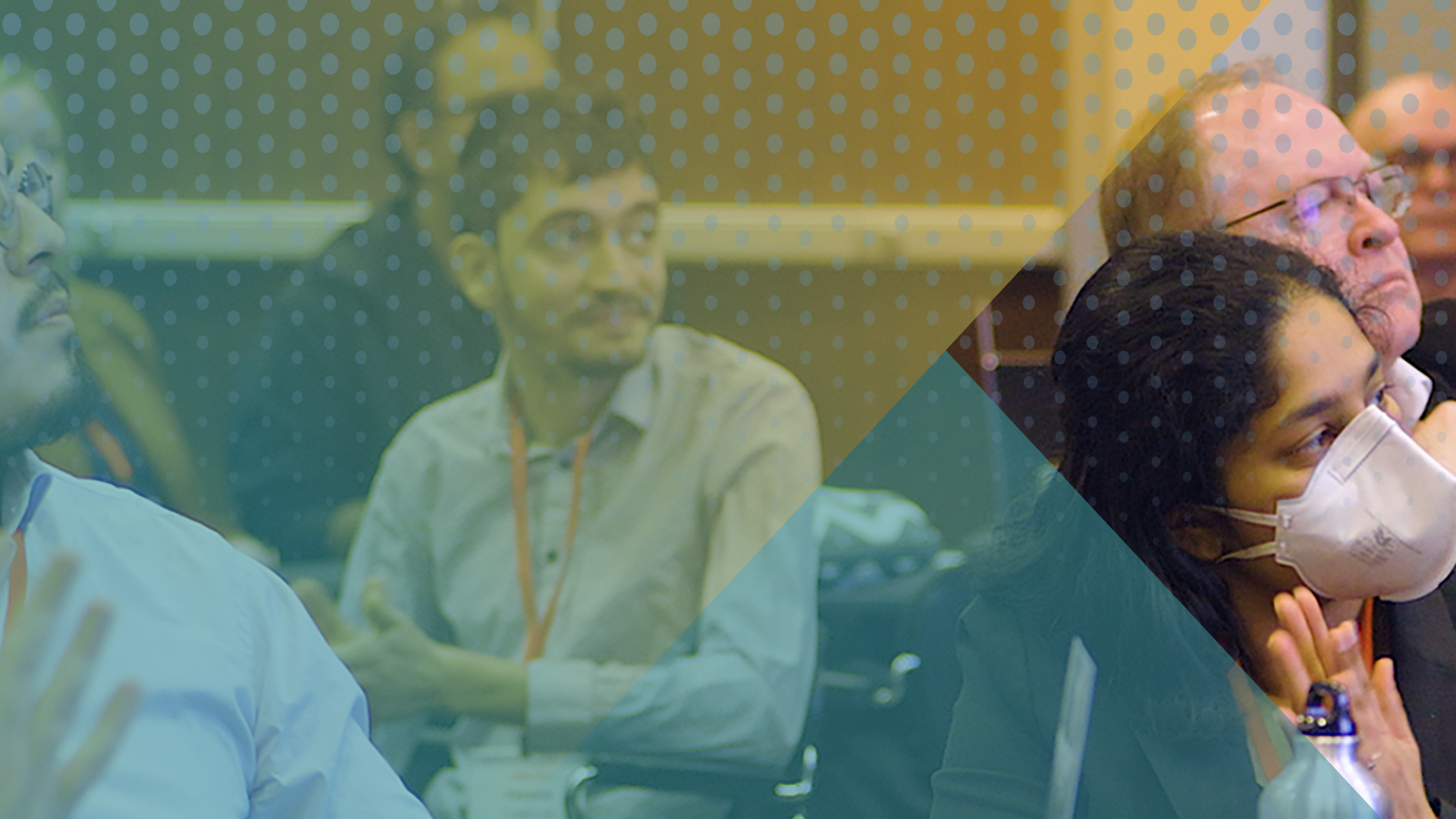By: Kathleen Sandusky
19 Apr, 2023

In March 2023, CIFAR hosted an interdisciplinary workshop that brought together researchers, policymakers, industry leaders and NGO representatives to explore opportunities for Canadian research and innovation aimed at developing AI solutions to address climate change. As one of the key strategic priorities of the second phase of the Pan-Canadian AI Strategy at CIFAR, activities in the area of AI for energy and the environment (AI4E+E) will accelerate solutions that mitigate the effects of climate change, protect the environment, and deliver innovation in the sustainable energy sector.
While the event was hybrid and available to remote attendees, the event team implemented an early launch of a new CIFAR carbon offset program to mitigate the carbon load for attendees who required travel. The program officially began in April, aimed at making CIFAR carbon neutral by 2024.
The day began with a keynote from David Rolnick, a Canada CIFAR AI Chair at Mila and co-chair of the Energy & the Environment Working Group of the Pan-Canadian AI Strategy at CIFAR. He was joined by Priya Donti, who with Rolnick co-founded Climate Change AI, a global non-profit that catalyzes work at the intersection of climate change and machine learning. The two outlined the findings and applications to Canada of their recent report, Building on Climate Change and AI: Recommendations for Government Action, which was produced by the Global Partnership on AI in collaboration with Climate Change AI and the Centre for AI & Climate.
Next came a case study from Graham Taylor, a Canada CIFAR AI Chair who is also the research director at the Vector Institute and heads the data team at the Centre for Biodiversity Genomics at the University of Guelph. Taylor outlined the work of BIOSCAN, a globally accessible DNA-based system underway through an international collaboration. Aimed at accelerating species discovery, the collaboration also investigates species interactions and dynamics in the face of rapid climate change. Taylor described the crisis of biodiversity loss: “We’re burning the books at the library, without even reading them.”
Symposium attendees also heard from Martha White and Adam White, both Canada CIFAR AI Chairs at Amii, who joined remotely to explain their water treatment pilot project currently underway in the rural community of Drayton, Alberta. Using reinforcement learning, their team has created a model treatment plant with similar conditions to the real water treatment plant now in construction, developing a control system that uses AI agents to rapidly adapt to situations that might arise in a real use, such as reacting to changes to the river water clarity, disruptive weather events or malfunctioning pumping systems and infrastructure.
Finally, a panel of industry and academic experts from the Canadian AI4E&E ecosystem, including Stuart Lombard (CEO, ecobee), Humera Malik (CEO, Canvass AI) and Deval Pandya (Director of AI Engineering, the Vector Institute) discussed key challenges and opportunities for startups in this space. Among the issues discussed in the panel was the risk of “greenwashing,” particularly in the area of oil and gas, thereby further entrenching the status quo rather than pushing towards a transition away from fossil fuels.
Following the talks, all symposium attendees worked in breakout sessions, tasked with identifying gaps that they collectively face in their work to use AI applications in energy and the environment. Together they identified and prioritized key opportunities for collaboration and investment to develop and implement applications for the use of AI to address important issues related to sustainable energy and the environment.
Update June 2, 2023: A report on the symposium findings and recommendations is now available for the wider community of stakeholders and the public. The outcomes will help to inform the next steps of the Pan-Canadian AI Strategy at CIFAR as we continue to advance the priority research area of AI4E+E.
Notifications